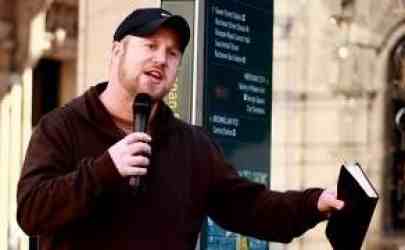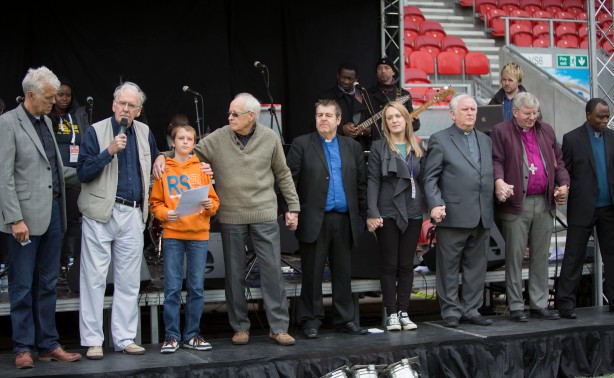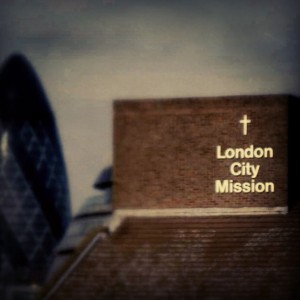Christians have a message of Good News and hope that needs to be heard. It is an amazing message which transforms us and sends us back out into society with distinctive love and generous actions.
Society, however, can be wary of Christians when we want to both help the needy and bring the Christian message, and it is easy to be intimidated. Our response though should not to keep our heads down and pretend we’re not Christians. We don’t need to hide the message about Jesus to fit in with some people’s views of what is acceptable in a pluralistic society. We care about people’s needs – about their deepest needs, material and spiritual. London City Mission have been meeting those needs for almost 180 years and we are not about to stop.
In our imagination we may look back to a golden age when the Christian message was popular and acceptable, but that is a fantasy. Reaching out with the Good News of Jesus has always been unpopular. The New Testament describes the gospel about a forgiving, risen Christ as a stumbling block for the religious, and madness for the intellectuals. We shouldn’t expect to be popular, but we press on because we have a message of Good News and hope that needs to be heard.
In British society we too often emphasise the individual ahead of the group. We have a society full of lonely individuals, a society where old people go the doctor to find someone to talk to. The answer is not to employ more doctors (although that wouldn’t be a bad thing). Part of the answer is to have people throughout society, radically transformed by the Good News of Jesus’ love, grace and forgiveness – ready to reach out with love to their neighbours, in word and action.
Churches have a vital role to play in London’s most needy communities. That role is more than just holding the community together though; Church is more than just a place to provide a Foodbank for the poor, or company for the elderly widow. Church is also more than just a place where people hear a stimulating talk followed by a chat with friends over a cup of coffee.
The transforming, life-changing message about Jesus flings Christians out into a world with hearts full of grace, sacrificial love, forgiveness, kindness and joy.
As we think of the Christians’ place in society, it seems there are two extremes we can tend to. One is to say that the church is primarily a religious organisation for the betterment of its members. In that case we will stay behind our stained glass windows reading the Bible without acting on its teaching about love, mercy, justice. The other extreme is to say that church is a social service whose main purpose is societal justice, in which case we are likely to be co-opted by a needy government into a professionalised social welfare organisation, filling the gaps in the government’s leaky social safety net.
We have a much more vital role than that. We show Christian love, we share Christian hope, and we do so without conditions. And we don’t just show it to people exactly like ourselves.
We have a message of Good News and hope that the whole world need to hear. Good News of sins forgiven, of grace to the undeserving, of love for the unlovely, freedom for the prisoner, hope of a new beginning for the addict.
It is as we live as 100% Christians, proclaiming the Good News of Christ and showing his love to the lost and needy, that we will play our role as salt and light in the dark and tasteless corners of this land. Salt that has lost its taste is worthless, but distinctive Christian action, centred on a declaration of the good news of Jesus is of very great value indeed.
Based on a speech to Christians on the Left on February 18th2014














